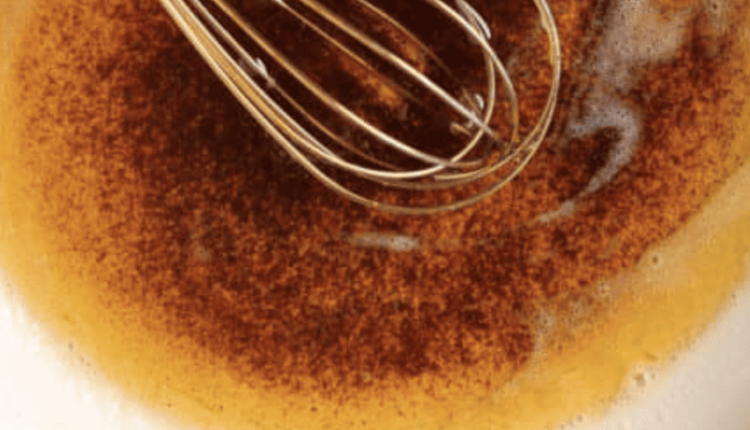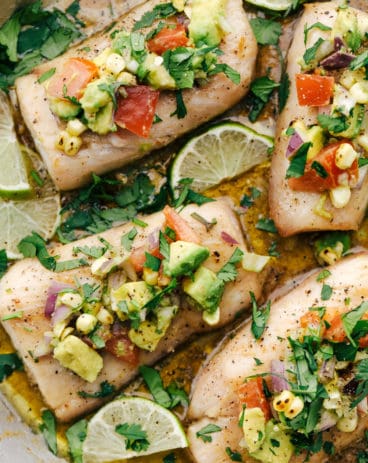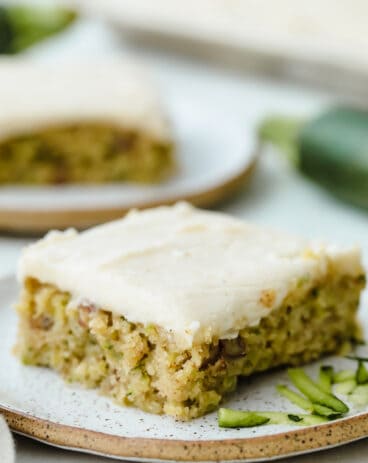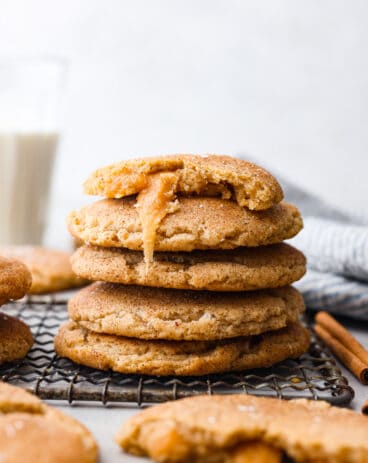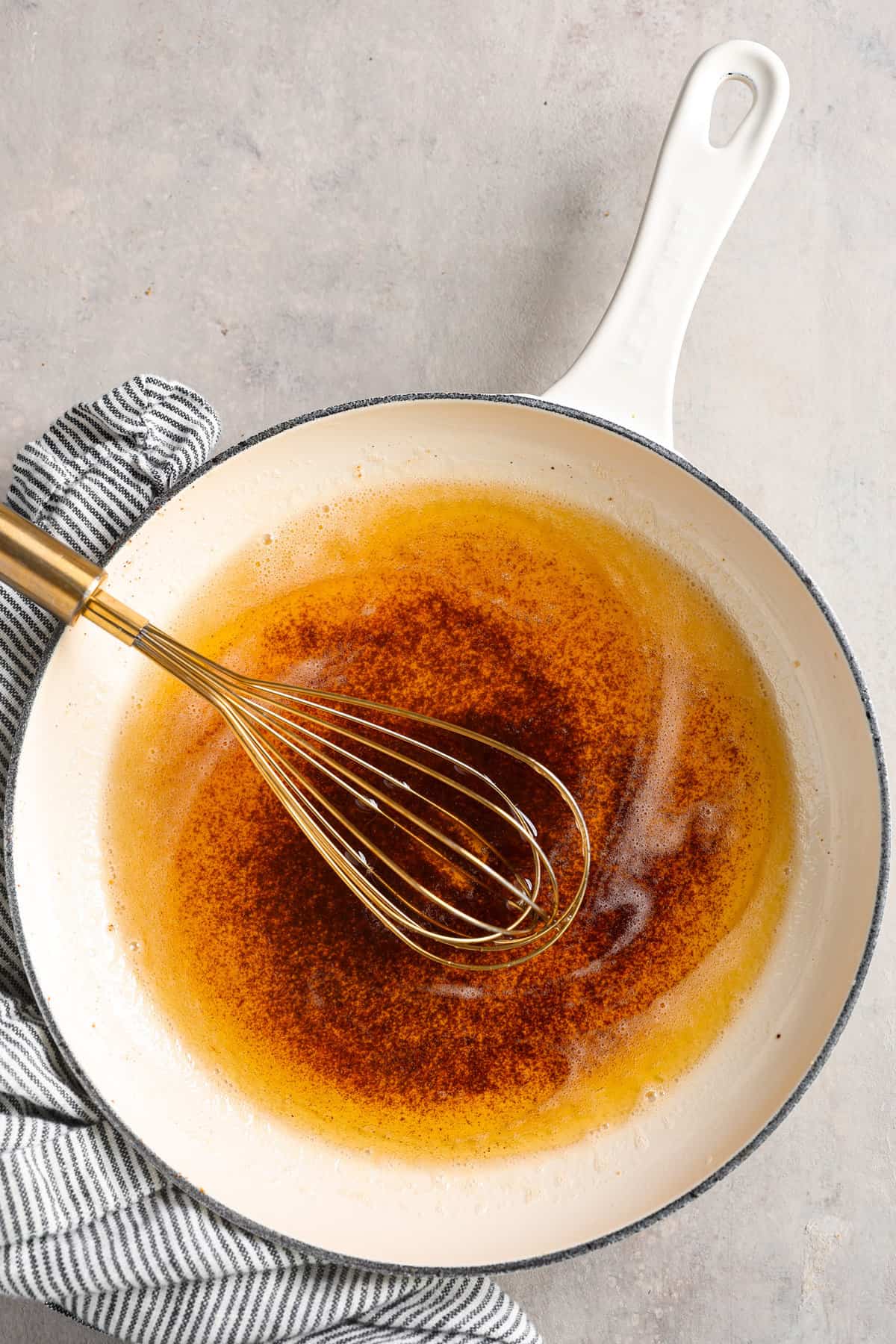
Learning how to brown butter will be your secret weapon in the kitchen! Easily done over the stove, butter slowly melts and releases a nutty toasted flavor that will enhance any sweet or savory recipe.
Brown butter is a magical ingredient in a lot of delicious recipes. This butter pecan cake is the first recipe I’d recommend making! I absolutely LOVE baking with brown butter and using it in frostings. It’s also incredible in savory dishes like this fried Gnocci or these roasted carrots. I can’t wait for you to try them!
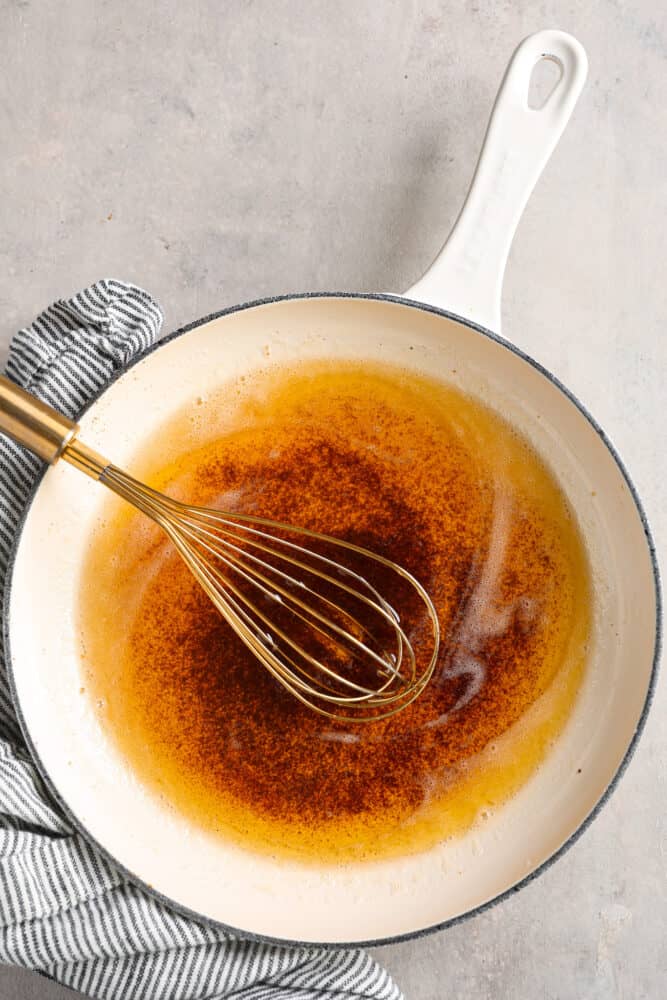
What Is Brown Butter?
Brown butter is regular butter that has been slowly melted and browned over the stove. Cooking the butter slightly past its melting point toasts the milk solids in the butter. The caramelization of the butter creates an aromatic nutty flavor that is perfect for sauces, baking, sauteeing, and much much more!
I love learning how to make staple ingredients and recipes in the kitchen. Learning how to brown butter was pretty high on my list because I know it’s a must for creating incredibly delicious recipes. Some other how-to recipes that are helpful in the kitchen would be how to make buttermilk and scrambled eggs. And for fun, learning how to make the most amazing steak would win over all of your loved ones!
What Do You Need To Brown Butter?
Browning butter only takes one ingredient…butter. It sounds too easy to be true. All you need is unsalted butter, a skillet, and a wooden spoon, rubber spatula, or whisk. Make sure you get unsalted butter because it will affect the flavor and outcome. I explain it all in the tips below!
- Unsalted Butter: Use good quality butter. I used 1 cup of unsalted butter in this recipe, but you can use any desired amount. Just remember that less butter will brown more quickly and more butter will take longer.
How To Make Brown Butter?
Browning butter is very easy and I walk you through all the steps! Don’t be intimidated by it because once you make it you will see how simple it is. You just have to be patient while it melts and know that it WILL start to brown. And once it does you’re on your way to the most amazing baking and cooking of your life!
- Place butter in a medium-sized saucepan and heat over medium heat until melted.
- As the butter melts it will start to foam. Turn up the heat just a notch above medium and continue to cook, stirring constantly as it pops and sizzles.
- Once the popping slows, the butter will begin to turn golden brown and have a nutty aroma (about 6-8 minutes). Remove from heat and pour into a small heatproof bowl. Let cool for 10-15 minutes.
- Depending on how you plan to use the butter, it is ready for immediate use or you may let it cool completely and store it in the fridge for up to 5 days.
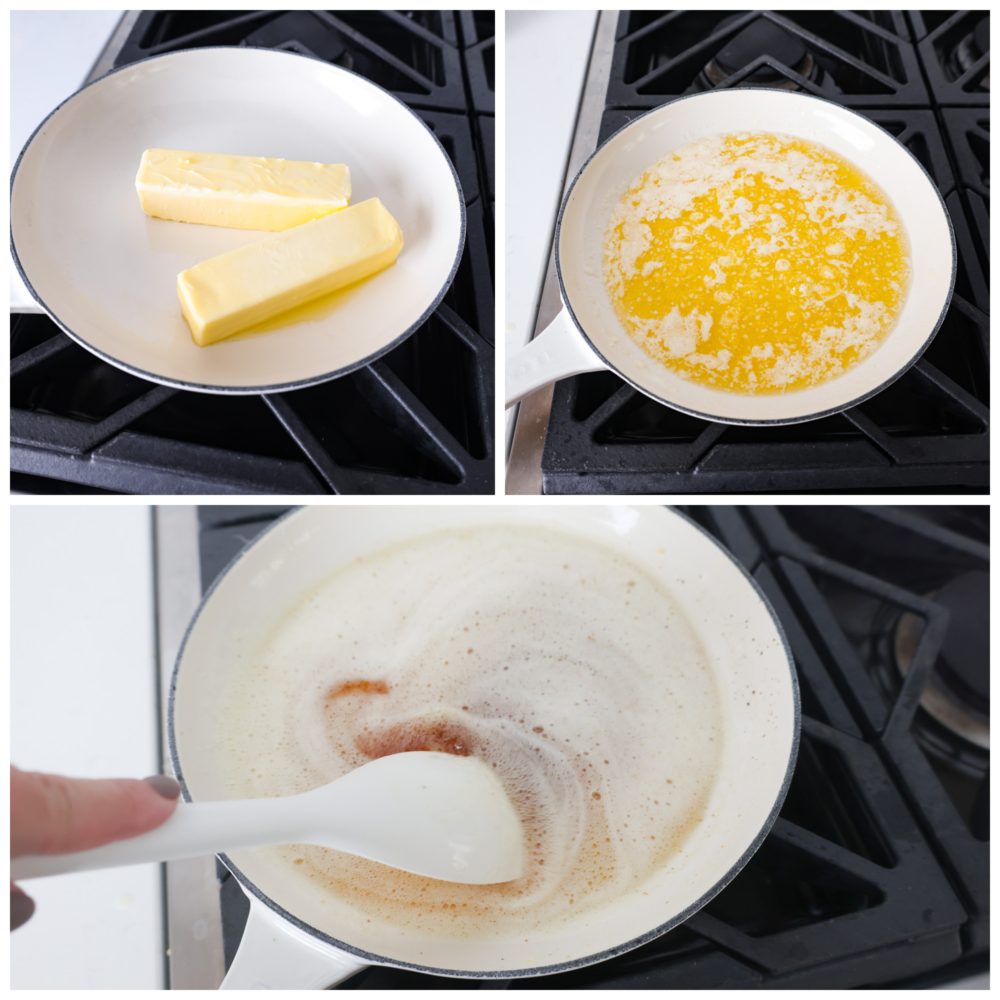
Tips
Here are my tips and tricks on how to brown butter. Read all my tips before starting because it will be SO helpful. Once you brown your butter you’ll become a pro. And once you use it in your recipes you’ll want to use brown butter all the time.
- Use Unsalted Butter: When using salted butter, the amount of water and salt in the butter varies from brand to brand. The salt ends up concentrated in the browned milk solids, which can negatively affect the taste. To avoid this, use unsalted butter and add salt to taste.
- Be Patient: The butter takes a little while to brown, but when it’s ready to brown it does so quickly.
- Watch it Closely: Keep a close eye on the butter, even if you think it’s not doing anything.
- Temperature: I like to brown butte low and slow. If you find that your butter is taking longer than 10 minutes to brown, it’s likely that the temperature of your heat is too low. Try turning up the heat just a notch and see if the butter browns quicker. Watch it closely.
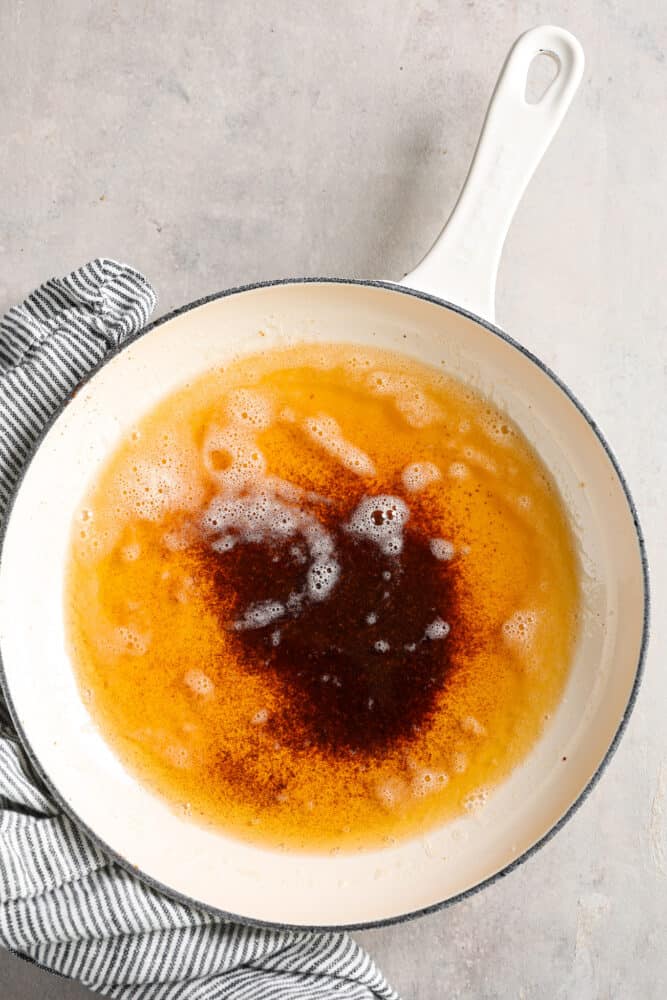
Storing Browned Butter
Once melted, the butter will solidify as it comes back to room temperature. Storing browned butter is easy and it can be reused in many recipes. Follow my instructions below for storing and reusing leftovers.
- In the Refrigerator: Store in the fridge in a sealed container for up to 5 days.
- In the Freezer: Store in the freezer in a sealed container for up to 3 months. You can pour the browned butter into an ice cube tray and freeze. Once frozen, pop out and put in a freezer ziplock bag. This way you can pull out a cube or two and easily add them to a sauce, soup, or dessert for some extra flavor.
- To Reuse: Reheat it in the microwave or on the stovetop at a low temperature until melted.
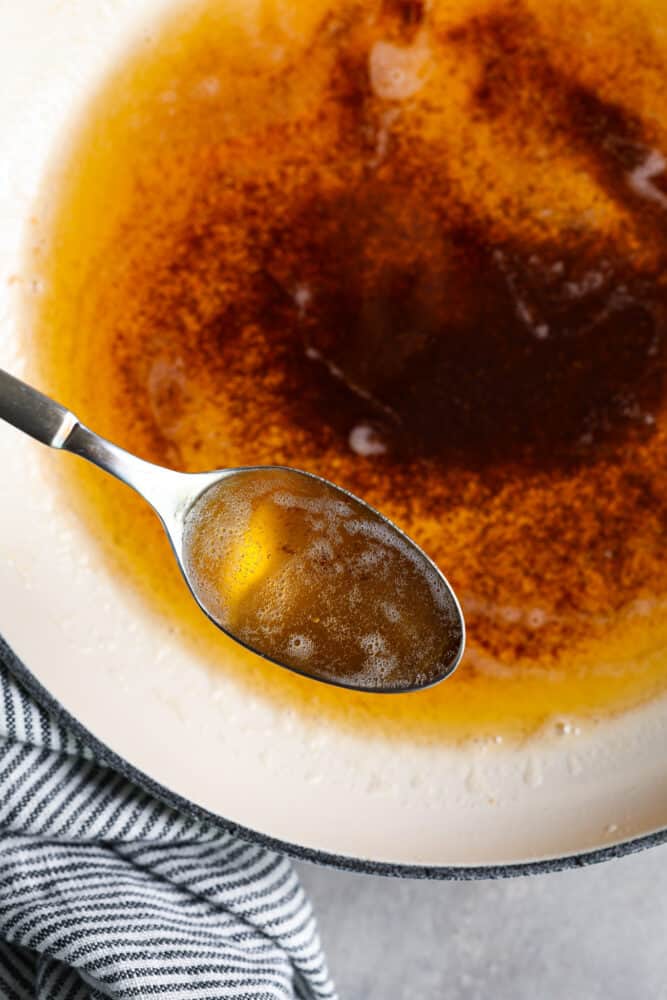
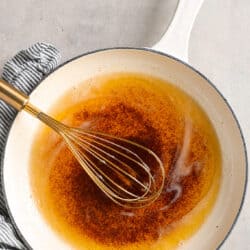
How to Brown Butter
Ingredients
- 1 cup unsalted butter, or your desired amount
Instructions
-
Place butter in a medium-sized saucepan and heat over medium heat until melted.
-
Once melted, turn up the heat just a notch above medium and continue to cook, stirring constantly as it pops and sizzles.
-
Once the popping slows and the butter begins to turn brown and fragrant (about 6-8 minutes), remove from heat and pour into a small heat-proof bowl. Let cool for 10-15 minutes.
-
Depending on how you plan to use the butter, it is ready for immediate use or you may let it cool completely and store it in the fridge for up to 5 days.
